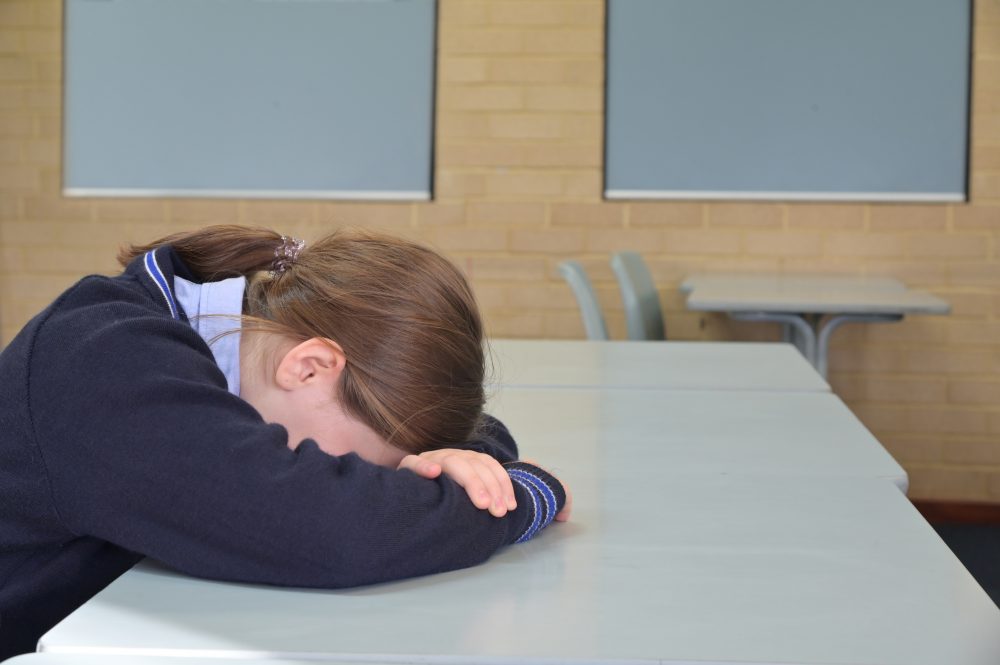The government must tackle “many shortcomings and failings” in current safeguarding training, data-sharing, checks and sanctions in schools, according a child sexual abuse inquiry.
The Independent Inquiry ito Child Sexual Abuse’s latest report on residential schools, published today, says many “deeply distressing cases of serious abuse” went unnoticed or were not appropriately handled.
“Poor leadership frequently left staff unaware of how to respond to concerns about sexual abuse or too afraid of potential consequences to act,” said Professior Alexis Jay, IICSA chair.
“Day and residential schools play a key role in keeping children safe from harm, but despite 20 years of enhanced focus on safeguarding they are not as safe for children as they should be. This must change.”
The government-ordered inquiry had heard evidence over five independent special schools, four fee-paying specialist music schools part-funded by government grants, an independent boarding school, and two state day schools – Headlands School in the East Riding of Yorkshire, and Hillside First School in Weston-super-Mare.
Teacher Nigel Leat had pleaded guilty in 2011 to 36 offences against young girls at Hillside First School, with a review finding his inappropriate conduct had been noted more than 30 times but effective action not taken.
At Buckingham council-maintained special school Stony Dean, previously largely residential, two heads of care were convicted of sexual offences in 2000 and 2005 – one involving his former school and the other involving four Stony Dean pupils.
The IICSA published wide-ranging recommendations, urging the DfE to respond within six months.
1. National standards for safeguarding training
The government should introduce “nationally accredited standards and levels of safeguarding training in schools”.
The highest level of such training should be mandatory for heads or designated safeguarding leads.
The report notes “considerable differences of approach” as there is no minimum content for safeguarding in the initial teacher training curriculum, and academy and independent teachers do not need to have trained to achieve qualified teacher status.
It also said there is no designated safeguarding lead qualification, despite the NSPCC warning the inquiry that it risked staff lacking the required knowledge. There is a similar lack of compulsory training for boarding school staff, or specific or additional training for staff working with children with special educational needs in mainstream or special schools.
2. More powers for misconduct watchdog
There are “weaknesses” in teacher regulation, the report found.
The Teaching Regulation Agency, which has the power to ban teachers over misconduct, should have its remit extended to cover all teaching assistants, learning support staff and cover supervisors.
Current TRA guidance for schools does not make clear enough that safeguarding omissions can be sufficiently serious to constitute misconduct.
The report stated: “This means that cases of serious incompetence leading to safeguarding failures and risking harm to a child may not be referred to the TRA.”
The government is already consulting on widening the TRA’s powers.
3. More checks on volunteers
Current guidance on keeping children safe in education should provide more detail on the required supervision needed of volunteers in schools, according to the panel.
It should make clear DBS checks are free for volunteers and should be used “wherever practicable”.
Despite an increasing number of volunteers in schools, they are currently not eligible to be checked for any bans on working with children as they are “not considered to be engaged in a regulated activity”. Enhanced DBS checks are not compulsory.
4. Notify Ofsted of issues
Schools should be required to inform Ofsted when they refer staff to the Disclosure and Barring Service or Teaching Regulation Agency, while residential special schools and boarding schools should have to inform them of alleged abuse and other “serious incidents”.
There should be “professional or regulatory consequences” for failure to notify over such allegations.
“There are numerous examples of positive inspection reports predating the emergence of serious safeguarding concerns, and which are then followed by less positive inspection reports.”
Current inspection arrangements are “complex and confusing” over safeguarding. Effective inspection is sometimes hampered by the DfE, inspectorates and other agencies not sharing information, and staff also being “parsimonious” with providing information.
Chief inspector Amanda Spielman had told the inquiry her officials were often “expected to inspect blind”, with both the DfE and council staff not consistently sharing all relevant information.
5. Review RSHE for SEND pupils
The DfE is encouraged to hold an “urgent review” to improve relationships, sex and health education for children with special education needs and disabilities, in all settings.
The report noted a significant proportion of young victims of harmful sexual behaviour have learning disabilities. Charity Mencap told the inquiry RSHE was vital, but needed to be adapted to their learning needs and different, “often more limited life experiences” – something “often not achieved”.
There is no separate syllabus or guidance for pupils with SEND in the current RSHE guidance, with Mencap arguing for “greater leadership” by government.
Government: rules already strengthened
A government spokesperson called sexual abuse “abhorrent”, and said it expected schools and colleges to provide the right support, care and protection.
“Our Tackling Child Sexual Abuse Strategy sets out a whole system, cross-government approach to tackling all forms of child sexual abuse, regardless of where it takes place.
“Following the Ofsted Review last year, we strengthened guidance and support for teachers to help them spot signs of abuse and work is also underway to improve how safeguarding partners – police, council and health services – work together to protect children.”
Such reforms include asking schools to dedicate inset day training to safeguarding guidance and delivering the RSHE curriculum, reforming its guidance and extending it to post-16 settings, and updating Ofsted’s handbook over identifying abuse.
















Your thoughts